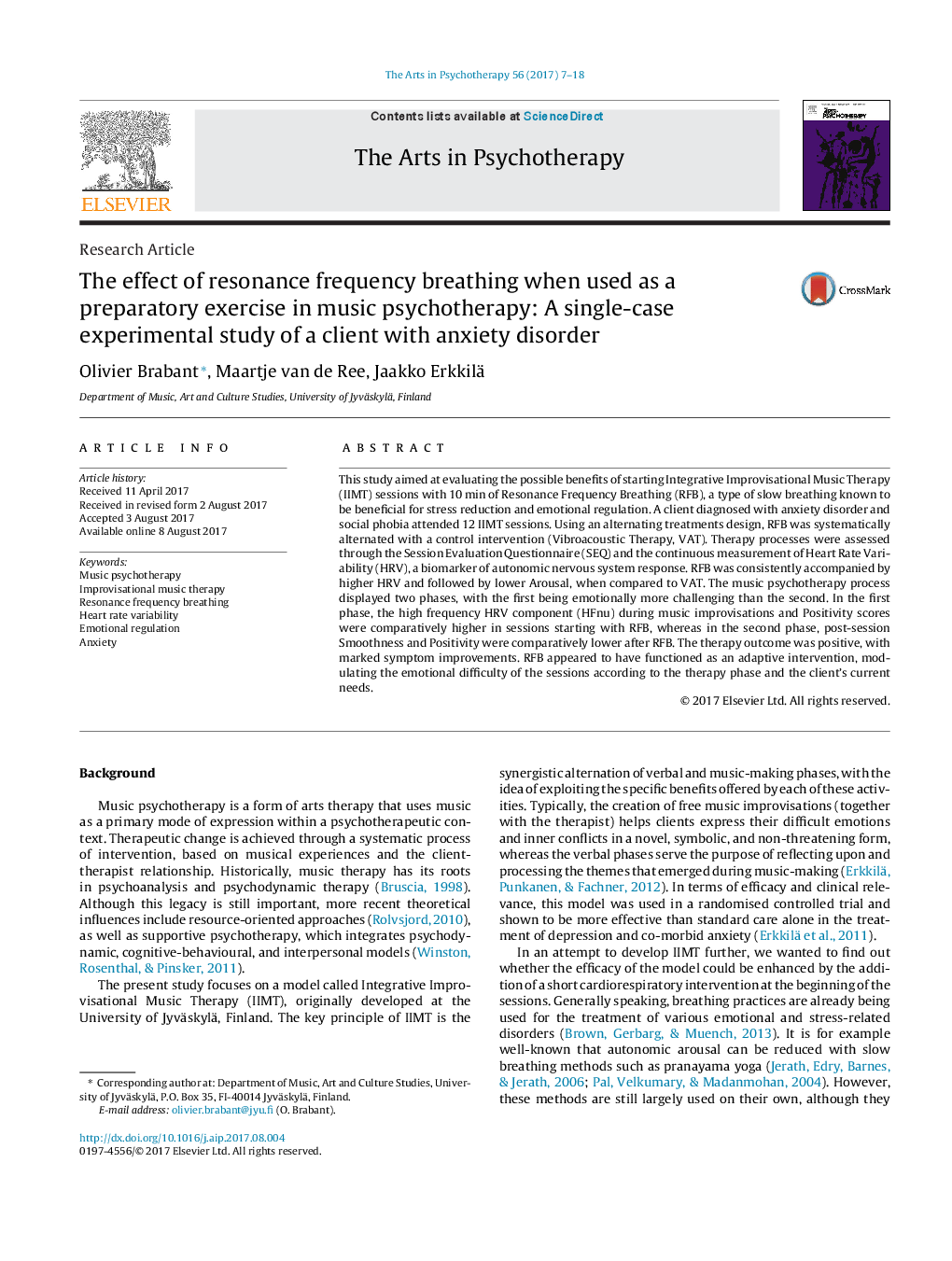ترجمه فارسی عنوان مقاله
اثر تنفس فرکانس رزونانس زمانی که به عنوان یک تمرین تهیه کننده در روان درمانی موسیقی مورد استفاده قرار می گیرد: یک مطالعه تجربی یک مورد یک مشتری مبتنی بر اختلال اضطرابی
عنوان انگلیسی
The effect of resonance frequency breathing when used as a preparatory exercise in music psychotherapy: A single-case experimental study of a client with anxiety disorder
| کد مقاله | سال انتشار | تعداد صفحات مقاله انگلیسی |
|---|---|---|
| 115095 | 2017 | 12 صفحه PDF |
منبع

Publisher : Elsevier - Science Direct (الزویر - ساینس دایرکت)
Journal : The Arts in Psychotherapy, Volume 56, November 2017, Pages 7-18
ترجمه کلمات کلیدی
روان درمانی موسیقی، موسیقی درمانی پیشرفته، تنفس تنفس تنفس، تنش قلبی، مقررات هیجانی، اضطراب،
کلمات کلیدی انگلیسی
Music psychotherapy; Improvisational music therapy; Resonance frequency breathing; Heart rate variability; Emotional regulation; Anxiety;

